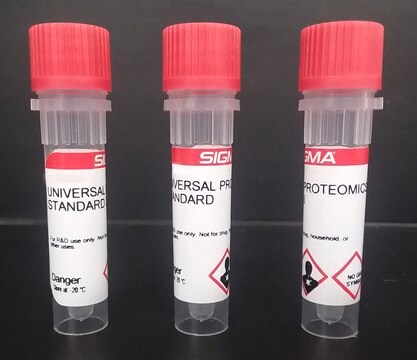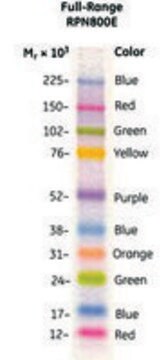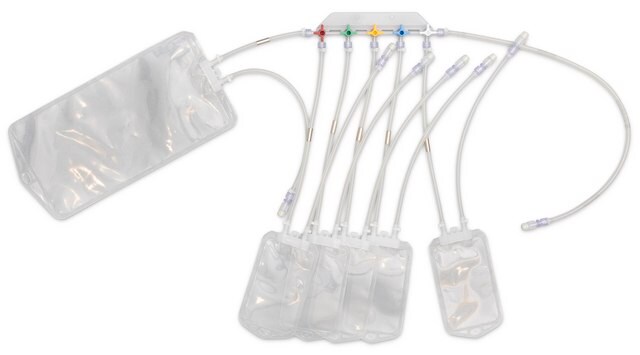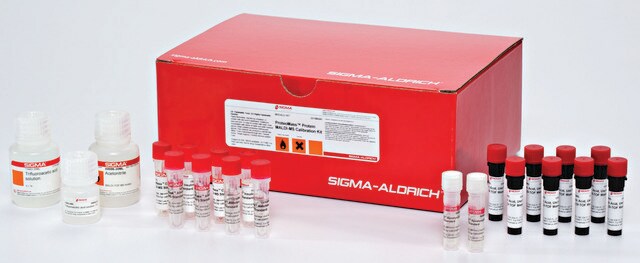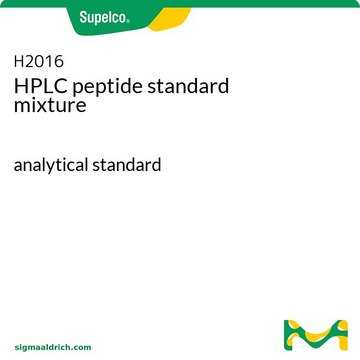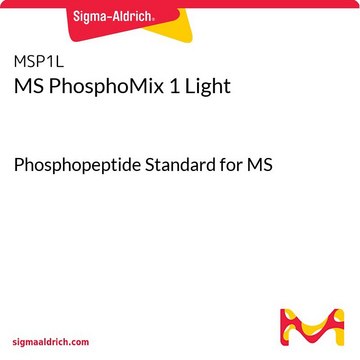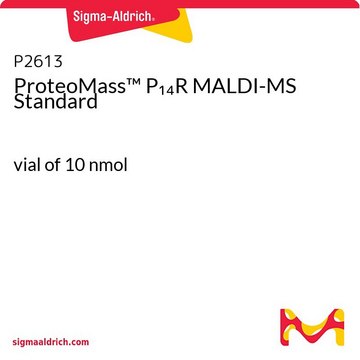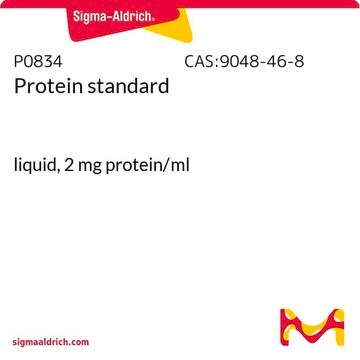UPS2
Proteomics Dynamic Range Standard Set
Protein Mass Spectrometry Calibration Standard
Sinónimos:
Dynamic Range Standards, Proteomics Standard Set
About This Item
Productos recomendados
origen biológico
human
Nivel de calidad
Formulario
ready-to-use solution
calidad
Protein Mass Spectrometry Calibration Standard
concentración
10.6 μg/ampule protein
técnicas
mass spectrometry (MS): suitable
Condiciones de envío
wet ice
temp. de almacenamiento
−20°C
Categorías relacionadas
Descripción general
Aplicación
Proteomics Dynamic Range Standard Set has been used for the quantification of dynamic range universal protein standard on Orbitrap Analyzer using all ion fragmentation. It has been used as a standard for intensity-based absolute quantification of proteins (iBAQ) in LC-MS (liquid chromatography-mass spectrometry)/MS analysis.
Los componentes del kit también están disponibles por separado
- T6567Trypsin from porcine pancreas, Proteomics Grade, BioReagent, Dimethylated 20 μgSDS
Producto relacionado
Palabra de señalización
Danger
Frases de peligro
Consejos de prudencia
Clasificaciones de peligro
Eye Dam. 1 - Repr. 1B - Resp. Sens. 1 - Skin Irrit. 2 - STOT SE 3
Órganos de actuación
Respiratory system
Código de clase de almacenamiento
6.1C - Combustible acute toxic Cat.3 / toxic compounds or compounds which causing chronic effects
Punto de inflamabilidad (°F)
Not applicable
Punto de inflamabilidad (°C)
Not applicable
Elija entre una de las versiones más recientes:
¿Ya tiene este producto?
Encuentre la documentación para los productos que ha comprado recientemente en la Biblioteca de documentos.
Los clientes también vieron
Contenido relacionado
Standardize Your Research. We offer both the Universal Proteomics Standard and the Proteomics Dynamic range Standard as complex, well-defined, well characterized reference standards for mass spectrometry.
Nuestro equipo de científicos tiene experiencia en todas las áreas de investigación: Ciencias de la vida, Ciencia de los materiales, Síntesis química, Cromatografía, Analítica y muchas otras.
Póngase en contacto con el Servicio técnico